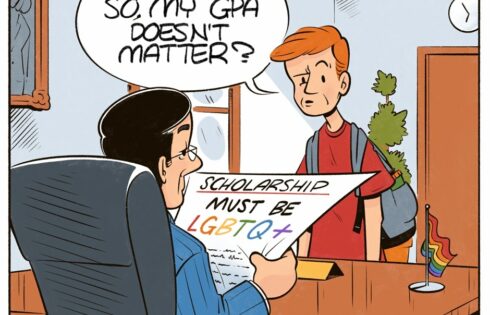
It doesn’t necessarily tell you anything about yourself
For years the “implicit association test” has been a huge part of the popular scientific literature. This test, using an esoteric method involving word-image association and quick keystrokes. purports to measure the hidden biases of those who take it. Some are found to have a preference for white individuals, others, for blacks, etc. The test results—millions and millions of them—allegedly show that society is rife with hidden, unconscious prejudice.
Except the test doesn’t really work that way. As The College Fix reported this week, even the designers and architects of the test itself readily admit that the test is insufficient for “individual-diagnostic purposes,” i.e. the test cannot readily tell a single person if he or she is actually biased. That’s a big deal: For years media reports have declared that the tool is capable of revealing biases after just one test. But that’s not true. As one of the test’s handlers put it: “A single administration of the [implicit association test] is not effective in the real-world *diagnosis* of individuals.” (There is compelling evidence that even *multiple* administrations of the test do not function that way, either.)
The test’s shortcomings have been known for several years, though that hasn’t stopped people from celebrating it. It continues to be cited as a useful and meaningful tool by which individuals can learn whether or not they are prejudiced in some way. That is a shame: A broken, misleading tool like this debases our discourse and distracts us from solving real problems in favor of fake ones. There are, to be sure, plenty of biases and prejudices in this country and the rest of the world. Taking a silly online test isn’t the way to identify, or solve, them.
MORE: Researchers defend the ‘implicit bias’ test
IMAGE: Roman Samborksky / Shutterstock.com
Like The College Fix on Facebook / Follow us on Twitter





Please join the conversation about our stories on Facebook, Twitter, Instagram, Reddit, MeWe, Rumble, Gab, Minds and Gettr.